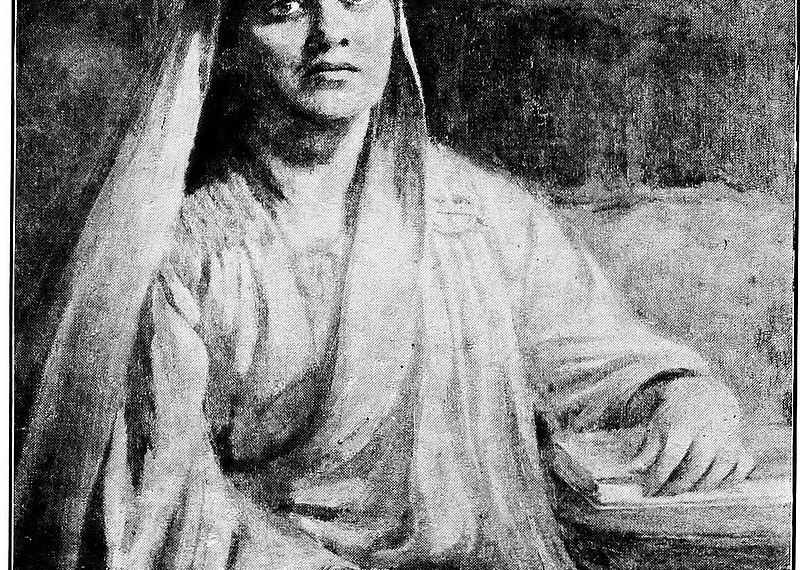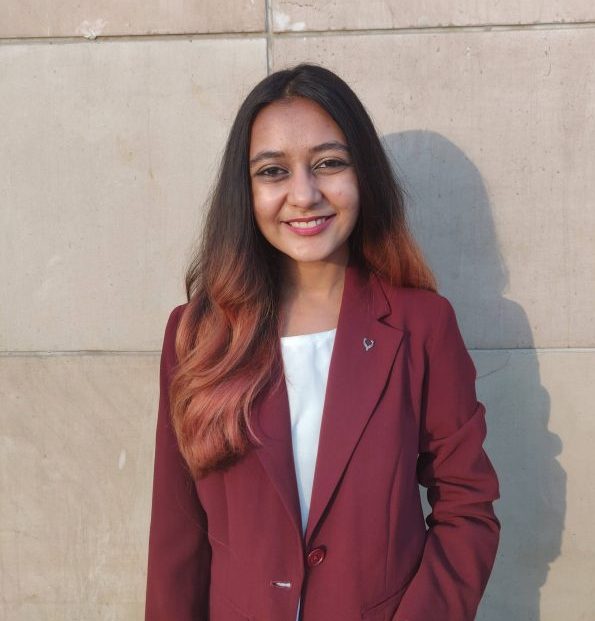The following essay celebrates Ambala Bose’s remarkable contributions as an educationist, suffragist and philanthropist. She used her education, liberal upbringing and privileges to uplift the status of marginalised sections, largely focused on changing the peripheral role women played in Indian society at the time.
There is a tendency of reducing women to their relationships with men who have achieved great feats. Lady Abala Bose too has been treated no differently by history. She spent her life working on the education, emancipation, and independence of women, and it is imperative that we remember her monumental contributions.
Abala Bose (1865-1951) was born to Brahmo reformer Durga Mohan Das and Brahmamoyee Debi. While her father is known in history as a renowned advocate for women’s rights, her mother too helped young widows with education and shelter, in her short lifetime. During Abala’s childhood, her family faced ostracism from the community for their advocacy towards widow remarriage.
Abala was raised in a household with a highly liberal outlook in the 19th century, and their reformist thinking is also reflected in Abala’s siblings. Her sister Sarala Roy was a distinguished educationist, while her brother Satish Ranjan Das was the Advocate-General of Bengal. Moreover, her cousins were the celebrated freedom fighter Chittaranjan Das, and former Chief Justice of India, Sudhi Ranjan Das. Fostering an environment that encourages progressive attitudes has led to the creation of this highly decorated family in Indian history. Each member has made colossal contributions to the India that we live in today.
At a time when educating women was not the norm, Abala did her schooling from Bangla Maha Vidyalaya and the celebrated Bethune School. With support from her father, she decided to pursue higher education in medicine. She secured admission at Madras University on a Bengal government scholarship. Though she cleared her final examination, she had to return to Calcutta due to her poor health.
Bose as an Educationist
After her education, Abala got married to the ‘Father of Radio Science’- Sir Jagadish Chandra Bose. With his knighthood in 1916, Abala too gained the title of a ‘Lady’. Owing to Sir Bose’s career, Lady Bose travelled the globe. It is during her travels that she began to learn different pedagogies adopted for educating girls in different parts of the world. She then applied these collected pedagogies to India. In 1910, she was elected as the Secretary for the Brahmo Balika Shikshalaya, a girls’ school in Kolkata. Over her 26-year-long term, Abala brought in significant innovations to the curriculum. Among the most prominent was the newly-devised Montessori system.
Abala also approached the eminent teacher and social activist, Sister Nivedita, to train the teachers working at the kindergarten-level. Under the latter’s guidance, the school witnessed a reform in curriculum and educational methods. The girls enrolled in the school were exposed to a unique and unprecedented mode of learning. They were also provided self-defence training and visits to places of interest.
In 1919, Abala brought together influential individuals such as Jadumati Mukherjee, Prafulla Chandra Ray, Chittaranjan Das, Sir Nilratan Sircar, and Priambada Banerjee to set up the Nari Shiksha Samiti. The Samiti was set up to bring about reforms for women at a mass level. The organisation was aimed at creation of a gender-sensitive curriculum, and the expansion of women’s education. It also sought to provide financial support to widows, promote women in STEM, and increase women’s representation in educational institutions – all of which aimed at enhancing individual freedom and agency for the women.
She also co-founded the Beltala Girls’ School in Bhowanipore and the Muralidhar Girls’ College. Through the course of her life, Lady Bose set up 88 primary schools and 14 adult educational institutions in the Bengal Province of British India.
Bose as an Advocate for Widows’ Upliftment
From her family, Abala inherited a concern for widows and the hardships they face in a society that stigmatises them. With this in mind, she set up the Vidyasagar Bani Bhavan in 1925. It served as a rehabilitation centre for widows, especially from underprivileged households, who had been expelled from their families. At the centre, these widows were equipped with vocational skills. Teacher training and education was provided to the widows, who would further go on to gain employment at the primary schools established by the Nari Shiksha Samiti. Along these lines, the Abala Bose-led Nari Shakti Samiti also established Bani Bhavan and Mahila Shilpa Bhavan. These organisations skilled young unmarried girls, housewives, and widows in embroidery and sewing, so as to provide them with a channel of income. In 1935, the Women’s Industrial Cooperative Home was set up to aid financial independence. In addition to this, Abala was also appointed as the first president of the Bengal Women’s Education League.
Bose as a Suffragist
Seen as one of the earliest Indian feminists, Abala is said to have influenced social worker Kamini Roy into the feminist movement. Roy is today seen as one of the most vocal advocates for women’s voting rights. What remains relatively unknown, however, is her classmate from Bethune, Abala, played a tremendous role in Roy’s feminist struggle.
Abala Bose’s contributions to the feminist movement extend well beyond educational reform and widow upliftment. She was also among the earliest trailblazers of the Indian suffragists’ movement. In 1917, she was part of a delegation that met with Edwin Montagu, during the negotiations of the Montagu-Chelmsford reforms. The delegation, which included suffragists such as Sarojini Naidu, Margaret Cousins, Ramabai Ranade, and Dorothy Jinarajadasa, contributed to women in India being first granted the right to vote in 1921, in Madras.
In the English Magazine Modern Review, Lady Abala Bose argued:
“women should have a deeper and extended education, not because we may make better matches for our girls … not even that the services of the daughter-in-law may be more valuable in the home of her adoption, but because woman like man is first of all a mind, and only in the second place physical and a body”.
This excerpt perfectly captures her progressive attitudes and the beliefs that drove her goal to uplift women. Her viewpoint was not to uplift women to make them more resourceful for their families or for their future generations. Instead, she primarily believed that a woman deserves a right to quality education simply because she too is first and foremost, a mind, that consists of the same human condition that makes up a man. This is an extraordinarily liberal outlook for a woman living in the early 20th century British India, and it is echoed in her work throughout her lifetime.
Bose’s Philanthropy and Final Days
Abala Bose had an empathetic understanding of the trials and tribulations most women faced in the society. Using her connections, resources, and privilege, contributed greatly towards broadening access to education. She also realised that in order to bring about significant change in society, she had to go beyond just setting up schools and educational centres. Holistic teacher training also played a major role in improving the quality of education imparted.
Following Dr. Bose’s death in 1937, Abala Bose set up the Sister Nivedita Adult Education Fund, where she donated Rs.10,00,000. The fund sought to provide for first aid, literacy classes, home gardening, and other skills to women hailing from rural areas. She had also set up Sadhana Ashram, and handed it over to the Brahmo Samaj a day before her passing in 1951.
Her drive to educate women went beyond the social hierarchies that are prevalent in society. As an early feminist, her work as an educationist was intersectional. One of the central aims behind her work was to eradicate casteism especially from rural areas. Additionally, she stressed on the need to bring women in purdah within the scope of her educational reforms, rather than wait for them to be able to venture out and seek an education for themselves. Moreover, in order to make the learning experience truly effective, Abala also underlined the fact that female teachers needed to replace Brahmin pandits to make the girls comfortable.
Abala Bose’s aims were not just to expand the access to education, and ameliorate the quality of education. She also believed that basic education was necessary to combat the major societal evils of that time. For this, her efforts were centred around ensuring literacy, and to convey the basic elements of hygiene and sanitation- specifically for women. As an early feminist, Abala also influenced many educationists who came after her. Saroj Nalini Dutt for instance, too emphasised on village reform. She advocated against the orthodoxy that prevented women from getting an education and having agency over their decisions.
As a feminist, Abala Bose dedicated her life to championing the liberal cause, one that would put men and women on the same footing. As a philanthropist, social reformer and educationist, she paved the path for an equitable, progressive, and liberal India of the future. She channelled her resources and privileges towards the betterment of the marginalised sections of society. Though coming from a highly illustrious family and being married to a renowned scientist, Lady Abala Bose made a name for herself in history that often overlooks the efforts made by women.


